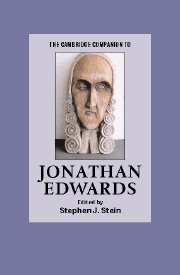Book contents
4 - The age of Enlightenment
from Part I - Edwards’s life and context
Published online by Cambridge University Press: 28 November 2007
Summary
From the second half of the seventeenth till the end of the eighteenth century, Western Christianity underwent a profound intellectual transformation; it went through a prolonged series of critical self-reexaminations of its basic intellectual foundations in many spheres - religion and science, society and politics, morals and manners, gender and race, economy and markets, education and childhood, crime and punishment. This reassessment marked the disenchantment of the world and the beginning of the modern age as we know it today. “Our age is, in special degree, the age of criticism, ” wrote Immanuel Kant (1724-1804) in Critique of Pure Reason (1781), “and to criticism everything must submit. Religion through its sanctity, and law-giving through its majesty, may seek to exempt themselves from it. But they then awaken just suspicion, and cannot claim the sincere respect which reason accords only to that which has been able to sustain the test of free and open examination. ” The intellectual movement associated with this important ideological and cultural transformation in the history of Western civilization is commonly called the age of Enlightenment.
Instead of accepting traditional religious worldviews at face value or uncritically adopting the values of established authority, Enlightenment thinkers elevated the role of the mind and emphasized the power of reason, thus leading to the abolition of customarily accepted moral and religious absolutes. “In much the same way that the world became the object of scientific inquiry in the sixteenth and seventeenth centuries through a process of desacralisation, so too, religious practices ” were “demystified by the imposition of natural laws. ”
- Type
- Chapter
- Information
- The Cambridge Companion to Jonathan Edwards , pp. 80 - 100Publisher: Cambridge University PressPrint publication year: 2006
- 3
- Cited by

